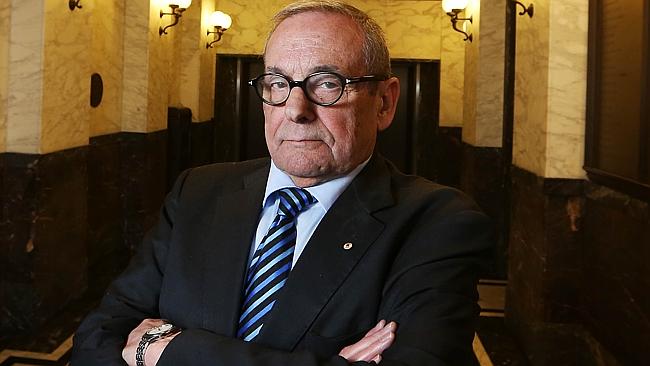
The NSW Independent Commission Against Corruption would be forced to correct its mistakes and abandon the “flamboyance and theatre” of public hearings under proposals being considered by the state government.
The changes would subject the commission to an “exoneration protocol” aimed at forcing it to expunge adverse findings against people who have been exonerated by the courts.
ICAC commissioners would also be prevented from returning to the Supreme Court bench at the end of their term in office and ICAC’s operations would be governed by a new code controlled by parliament. It would be subjected to increased oversight and the ICAC Act would be amended to make it answerable to parliament “on all matters” with safeguards for purely operational issues.
These proposals are outlined in the latest report to the state government by ICAC’s independent inspector David Levine who writes that the abolition of public hearings “will prevent the undeserved trashing of reputations”.
Corruption would still be exposed at the end of ICAC proceedings. This would permit “a proper focus and a fairly managed forensic process, without the distraction of the temptation for flamboyance and theatre”, the report says.
The proposed exoneration protocol was welcomed by some of those who have been cleared by the courts but are still referred to adversely in reports that ICAC continues to publish on its website.
They are former emergency services commissioner Murray Kear, suburban newspaper editor John Booth and Newcastle businessman Andrew Poole. All three urged the government to accept the change but called for ICAC to bear the cost of court proceedings associated with the scheme.
Mr Kear, who lost his job after ICAC found him corrupt, said Mr Levine’s proposal would make a great deal of difference because although he had been found not guilty in the Local Court, ICAC’s website still describes him as corrupt. “I am not guilty,’’ Mr Kear said. “ICAC got it wrong, and it’s purely logical that ICAC take down that report.”
John Booth, who owns and edits suburban newspaper The Weekly Times, called for ICAC to bear the costs of the protocol and compensate him for the $150,000 he spent proving in court he had not given false evidence to ICAC.
Mr Levine’s report says Ryde councillor Jeff Salvestro-Martin was dumped as a Labor candidate for the seat of Bennelong as a direct consequence of an ICAC inquiry but was never charged with an offence nor ever found corrupt.
The report says the experience of Mr Kear, Mr Booth and Mr Salvestro-Martin are examples of how a public inquiry can have a significant negative impact on a person’s reputation and their personal life. “Notwithstanding the exoneration of Mr Booth and Mr Kear in court, the findings in the ICAC report will remain on the record,” the report says.
ICAC issued a statement yesterday saying Mr Levine had not consulted the commission and the proposed exoneration protocol “ignores the basis upon which corrupt conduct findings are made under the ICAC Act. It also ignores relevant case law”.
Premier Mike Baird welcomed the report, which will be considered by a bipartisan committee.
Chris Merritt- The Australian
(WTF used with permission)
